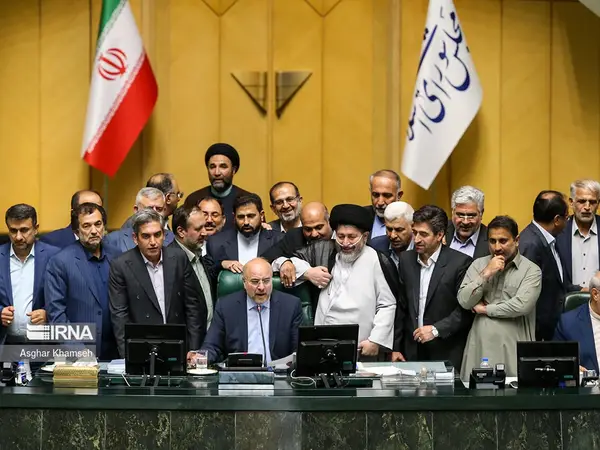Iran’s parliament impeached industry minister Reza Fatemi-Amin Sunday for the current economic crisis, despite a direct intervention by President Ebrahim Raisi.
The session lasting more than six hours was marked by attacks from his opponents, Raisi’s speech and Fatemi-Amin’s own defense of his performance.
Statements by lawmakers as well as Raisi and his minister was a classic show that revealed some of the regime’s behavior in attributing serious issues to the shortcomings of individual officials rather than systemic problems in Iran’s governance.
The most remarkable revelation was not what critics said, but what Raisi and Fatemi-Amin admitted to be the existence of a “car mafia” in the country that dictates policy and prevents imports of decent passenger vehicles at normal prices, producing sub-standard and expensive local vehicles.
For years critics and politicians have criticized the government-controlled auto industry and have referred to a “mafia” running the money-losing and inefficient sector, largely owned by the government.
In 2019, it was revealed that carmakers owed $9 billion, a considerable sum in Iran, due to corruption and mismanagement.
However, lawmakers held Fatemi-Amin responsible for rising car prices, instead of criticizing lack of competition, the centrally-run economy that leads to political interference and the falling Iranian currency, which has led to a higher than 50-percent annual inflation rate.
To be certain, Fatemi-Amin is just an average Islamic Republic official, who would not be capable of improving the fundamentals of the country’s mismanaged economy, even if he were a business and economic genius.
But at the dangerous juncture of a deepening economic crisis and approaching parliamentary elections in ten months, it seems that someone had to be held responsible, even by a parliament stacked with hardliners who initially supported Raisi’s government.
The Iranian rial has again began to fall against the US dollar and other major currencies, dropping to near 550,000 to the dollar on Sunday. This can only mean more inflation, while tens of millions of people have already become impoverished since 2018 when the United States imposed economic sanctions to force Iran to make concessions in its nuclear and military programs.
Recent allegations that Fatemi-Amin gave out 70 SUV vehicles to lawmakers to prevent their first attempt at collecting sufficient signatures for his impeachment, was the last blow that sealed his fate.
In his speech, the minister claimed that the “car mafia” spent money to discredit him, and even unknown assailants attacked and beat up his deputy, without the judiciary seriously following up on the incident.
He claimed that the “car mafia” had ways to prevent him from lowering vehicle prices. However, one lawmaker responded that if the minister is the people’s representative, why the “car mafia” has gone to great lengths recently to pressure members of parliament and prevent his impeachment.
Fatemi-Amin and some of his supporters in parliament also mentioned US sanctions as a an important reason for the disarray in the car industry. Until now, most hardliner lawmakers and their allies in the government had been arguing that sanctions have little impact and the Islamic Republic could stand on its own feet and strengthen the economy.
No regime insiders and few other politicians in Iran dare to speak about the need to reach an agreement with the United States, lift the sanction and alleviate the situation. It seems to be clear to most that the nuclear and diplomatic policies are decided at the higher level of Supreme Leader Ali Khamenei and it is expected from officials to muddle through.
The hard-pressed population can protest, as they have been doing since September, but the regime has no reservation about using deadly force to keep itself in power. Security forces have killed more than 500 civilians in recent months and arrested around 22,000 protesters and dissidents.
